The government was warned last year that it needed an action plan to deal with a coronavirus-style pandemic, according to a leaked Cabinet Office report.
The 600-page National Security Risk Assessment (NRSA) reportedly warned that a new pandemic virus could “both highly transmissible and highly virulent”, with even a mild outbreak leading to tens of thousands of deaths and costs running to more than £2 trillion.
The document, seen by The Guardian, cited the need for stockpiling of personal protective equipment (PPE), advanced plans for contact tracing and proposals to manage a surge in the death rate.
Download the new Independent Premium app
Sharing the full story, not just the headlines
It also flagged the need to assist British nationals abroad and repatriate them to the UK, another area where the government has faced criticism.
Labour described the news as “alarming” and said Michael Gove, the Cabinet Office minister, must be hauled before MPs on Monday to explain why these recommendations were not implemented.
The dossier was said to have been signed off by the chief scientific adviser Sir Patrick Vallance, highlighting the devastating social and economic costs of a major disease outbreak.
“A novel pandemic virus could be both highly transmissible and highly virulent,” it said.
“Therefore, pandemics significantly more serious than the reasonable worst case … are possible.”
The Cabinet Office refused to comment on the leak but insisted that the government had been “proactive” in implementing lessons learned about pandemics.
But the leaked document prompted fury from opposition parties who have repeatedly criticised the government for being too slow to respond to the outbreak.
Rachel Reeves, the shadow cabinet office minister, said: “The revelations in this report are alarming and raise serious questions about the government’s preparedness for a pandemic.
“Michael Gove must make a statement to parliament on Monday explaining why its recommendations were not implemented.”
The latest news on Brexit, politics and beyond direct to your inbox
Liberal Democrat health spokesperson Munira Wilson told The Independent the lack of protective kit for healthcare workers was “indefensible” in the light of the leaked report.
She added: “It raises real questions as to why the government had not taken more steps to ensure proper stockpiles of PPE were on hand in the event of a pandemic in the UK.
“The government must commit to a full independent inquiry once the we have tackled the pandemic, and get their act together now and provide frontline NHS and care workers with the equipment they need to keep them safe as they do their jobs.”
The NSRA examined the risk of a viral flu pandemic and also a coronavirus outbreak, such as earlier viruses Sars and Mers.
In a series of “reasonable worst case scenarios”, the document suggested an outbreak would play out in three waves, lasting around 15 weeks with the peak occurring in weeks six and seven of each wave.
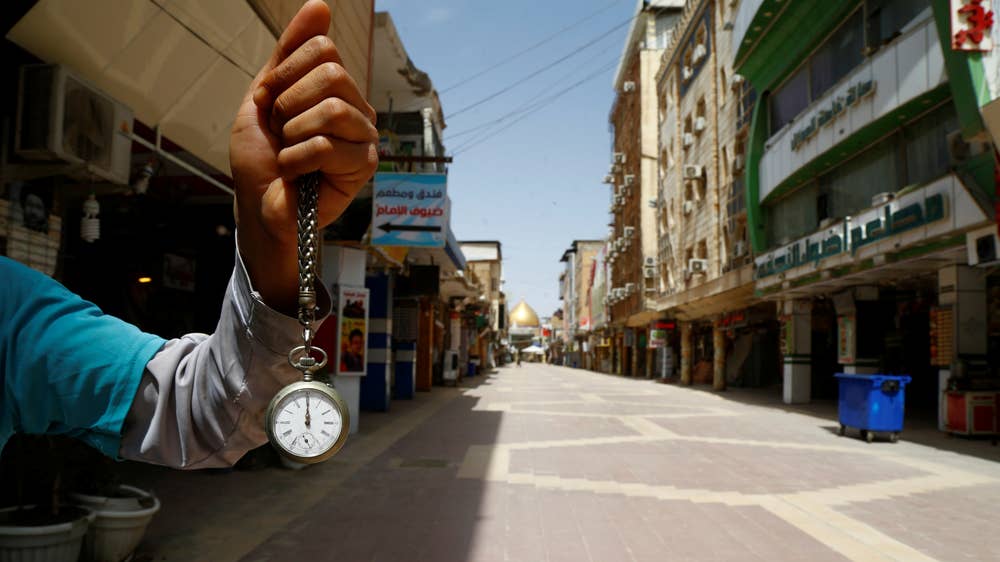
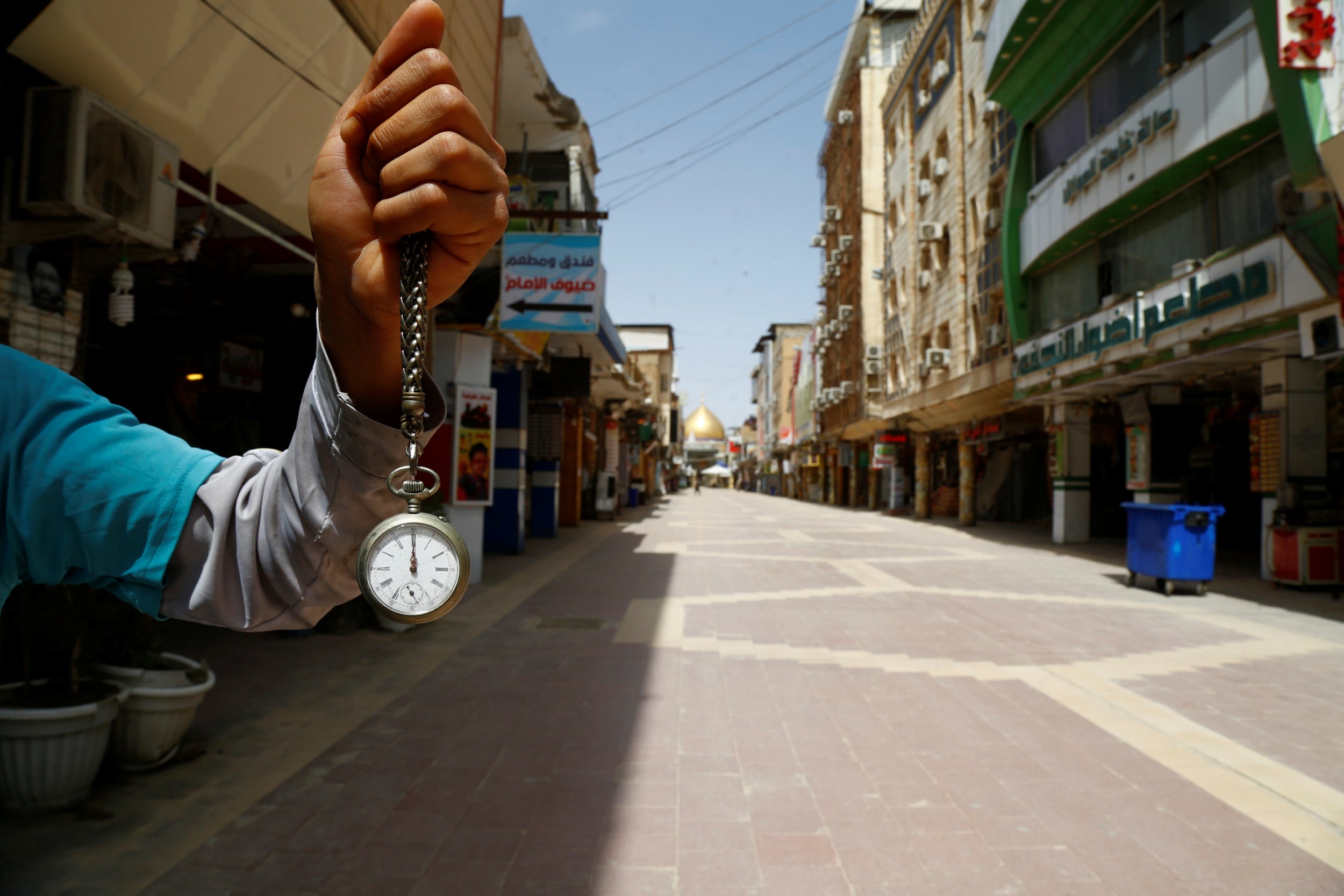
1/18 Najaf, Iraq
A man holds a pocket watch at noon, at an almost empty market near the Imam Ali shrine
Reuters

2/18 Bangkok, Thailand
Wat Phra Si Rattana Satsadaram (The Temple of the Emerald Buddha, part of The Grand Palace)
Reuters

3/18 Prague, Czech Republic
An empty street leading to the historic Old Town Square
Reuters
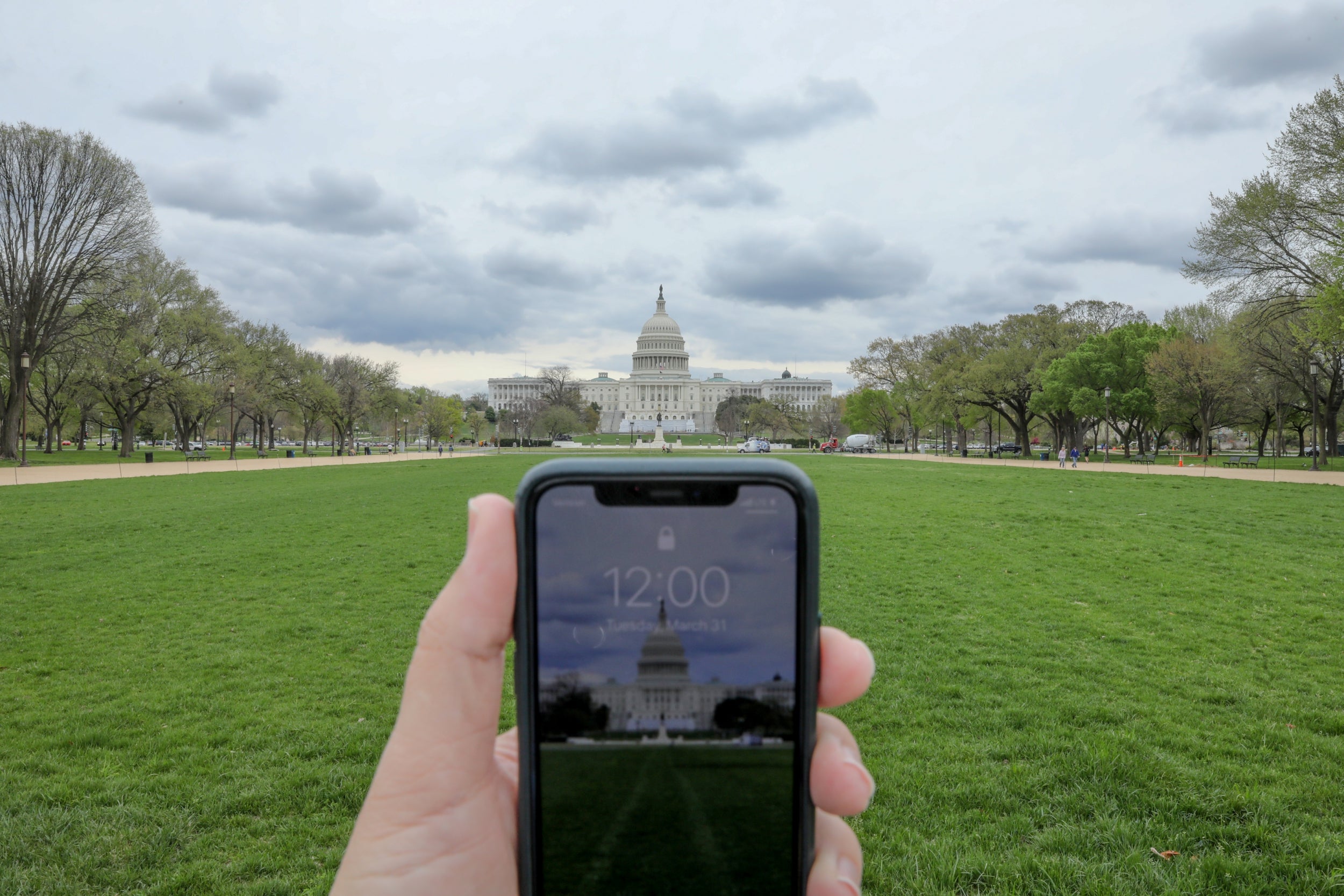
4/18 Washington DC, US
Lawn stretching towards the Capitol, home of Congress
Reuters

5/18 Jerusalem’s Old City
A watch showing the time in front of Damascus Gate
Reuters
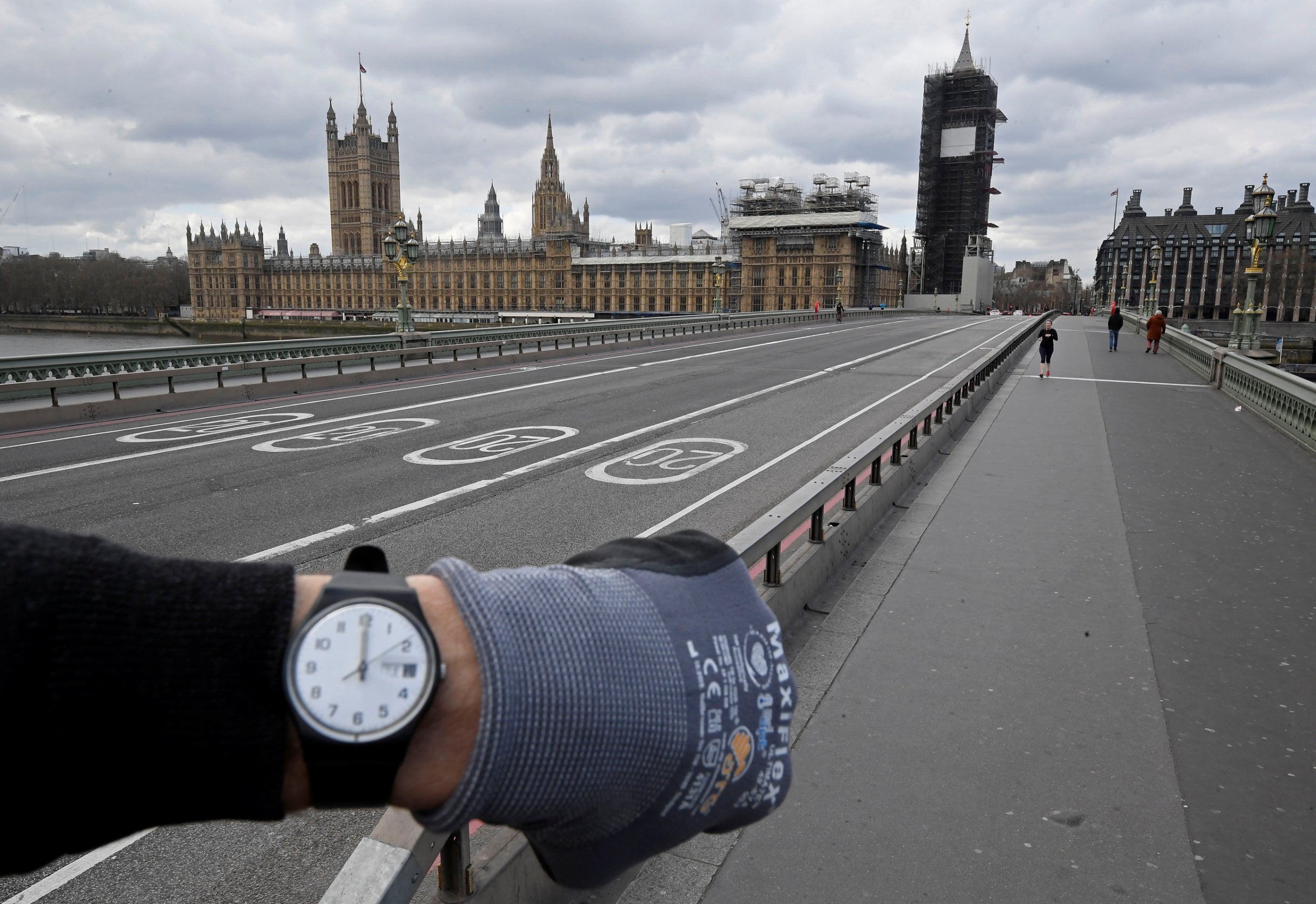
6/18 London, UK
The Houses of Parliament seen from Westminster Bridge
Reuters

7/18 Wuhan, China
Empty lanes in the city that saw the first outbreak of disease
Reuters
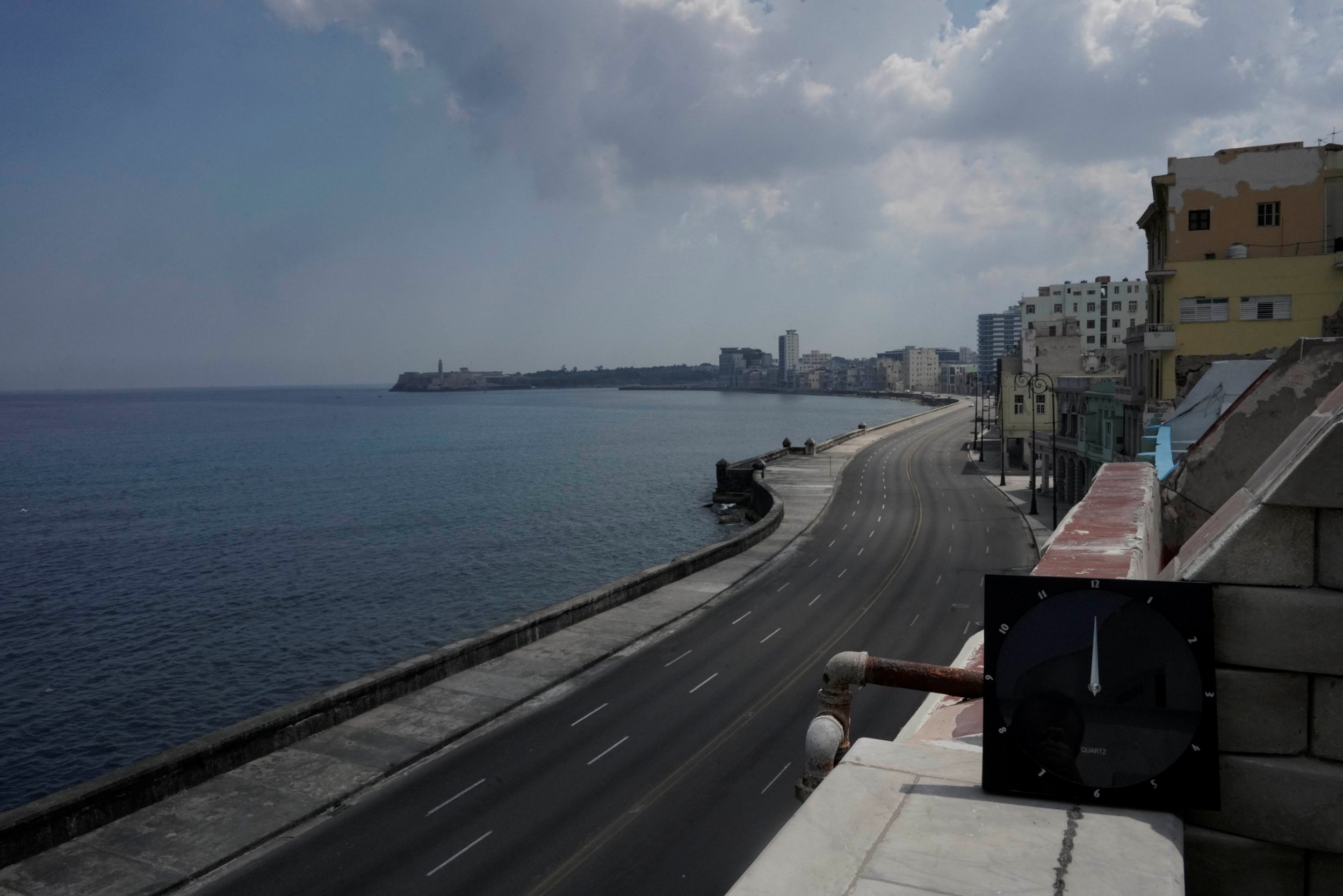
8/18 Havana, Cuba
The Malecon road and esplanade winds along the city’s seafront
Reuters

9/18 Cairo, Egypt
A little busier than elsewhere: midday traffic in Tahrir Square
Reuters
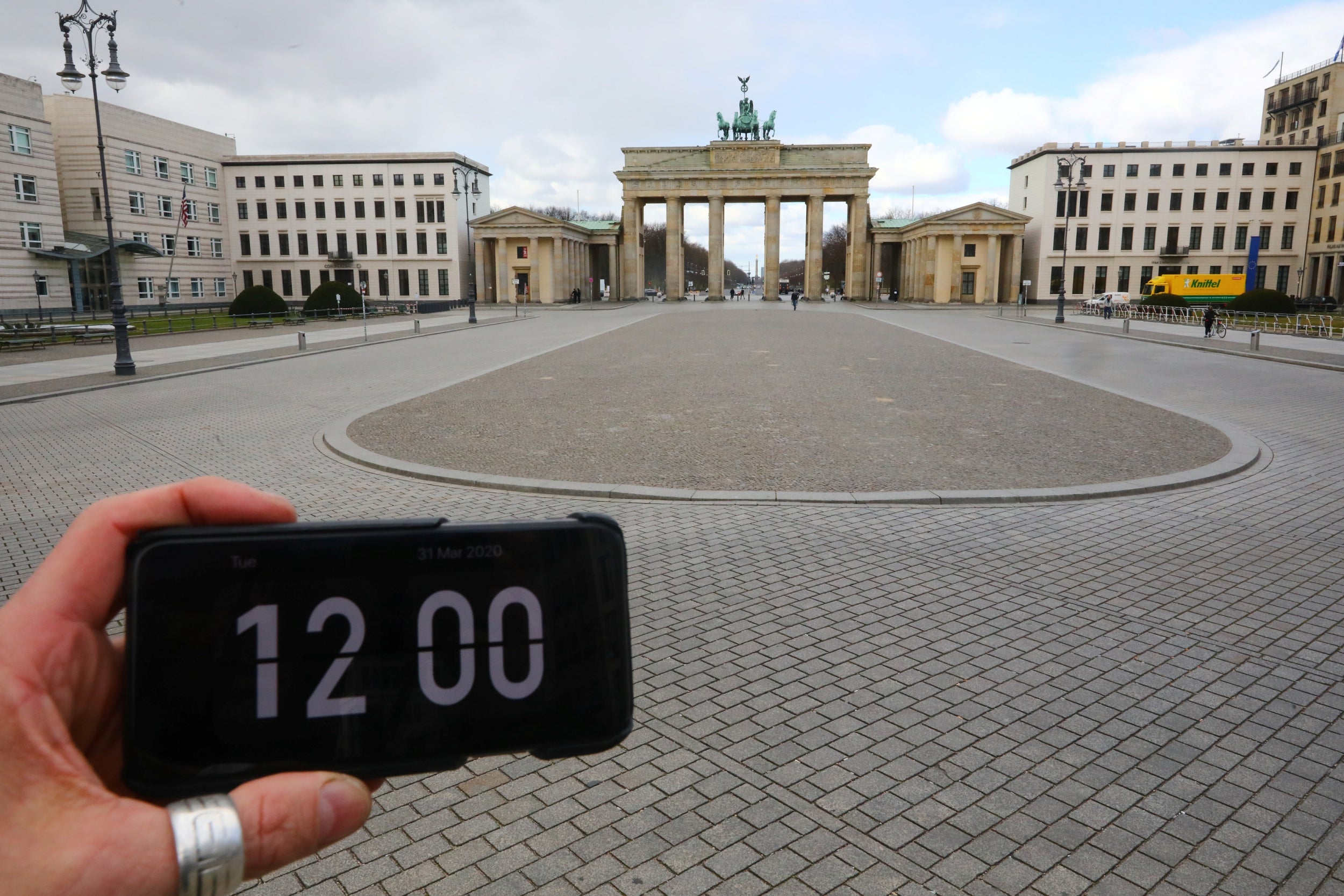
10/18 Berlin, Germany
The Brandenburg Gate, the only surviving city gate in the capital
Reuters
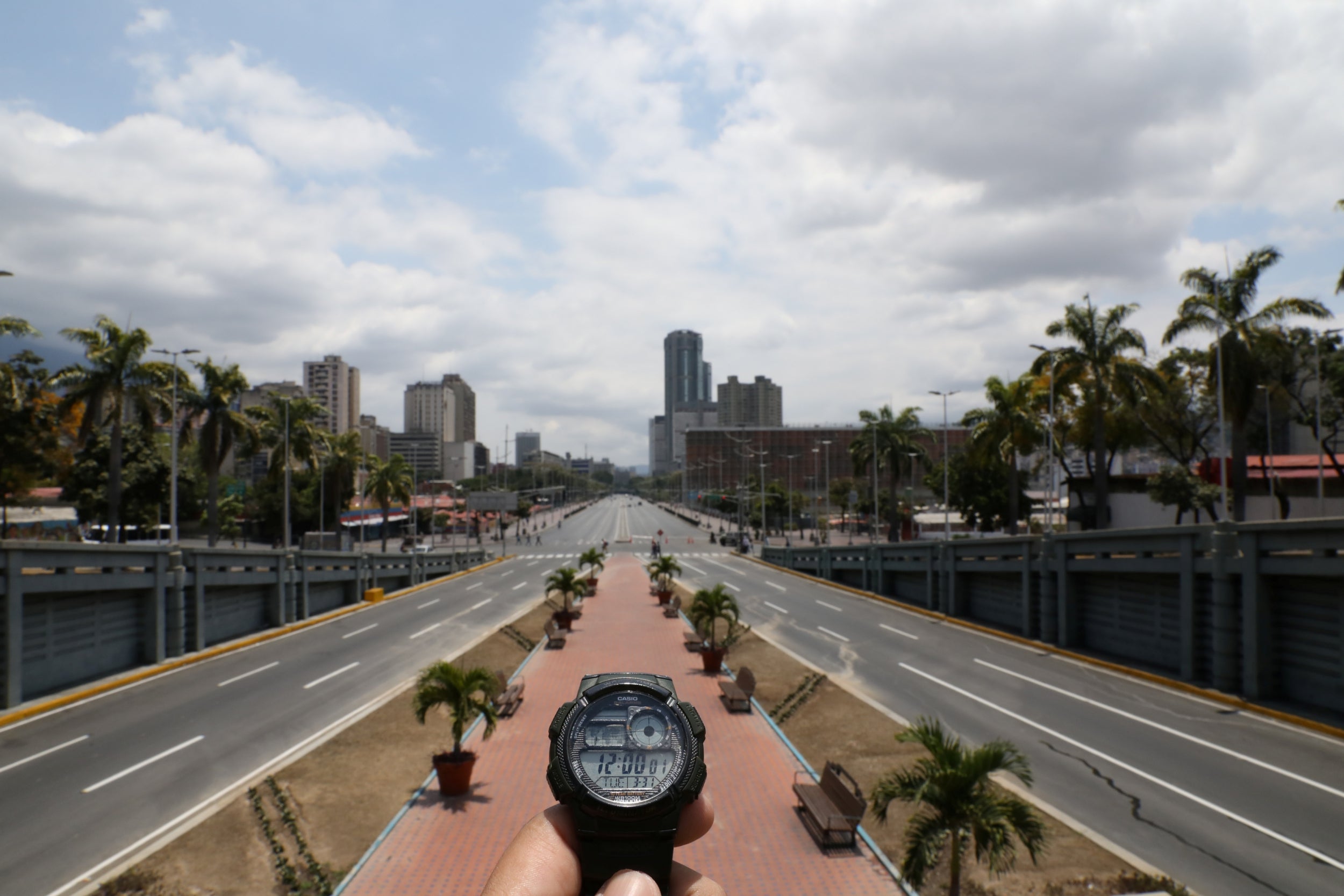
11/18 Caracas, Venezuela
Bolivar Avenue, opened in 1949 and the site of many demonstrations and rallies
Reuters
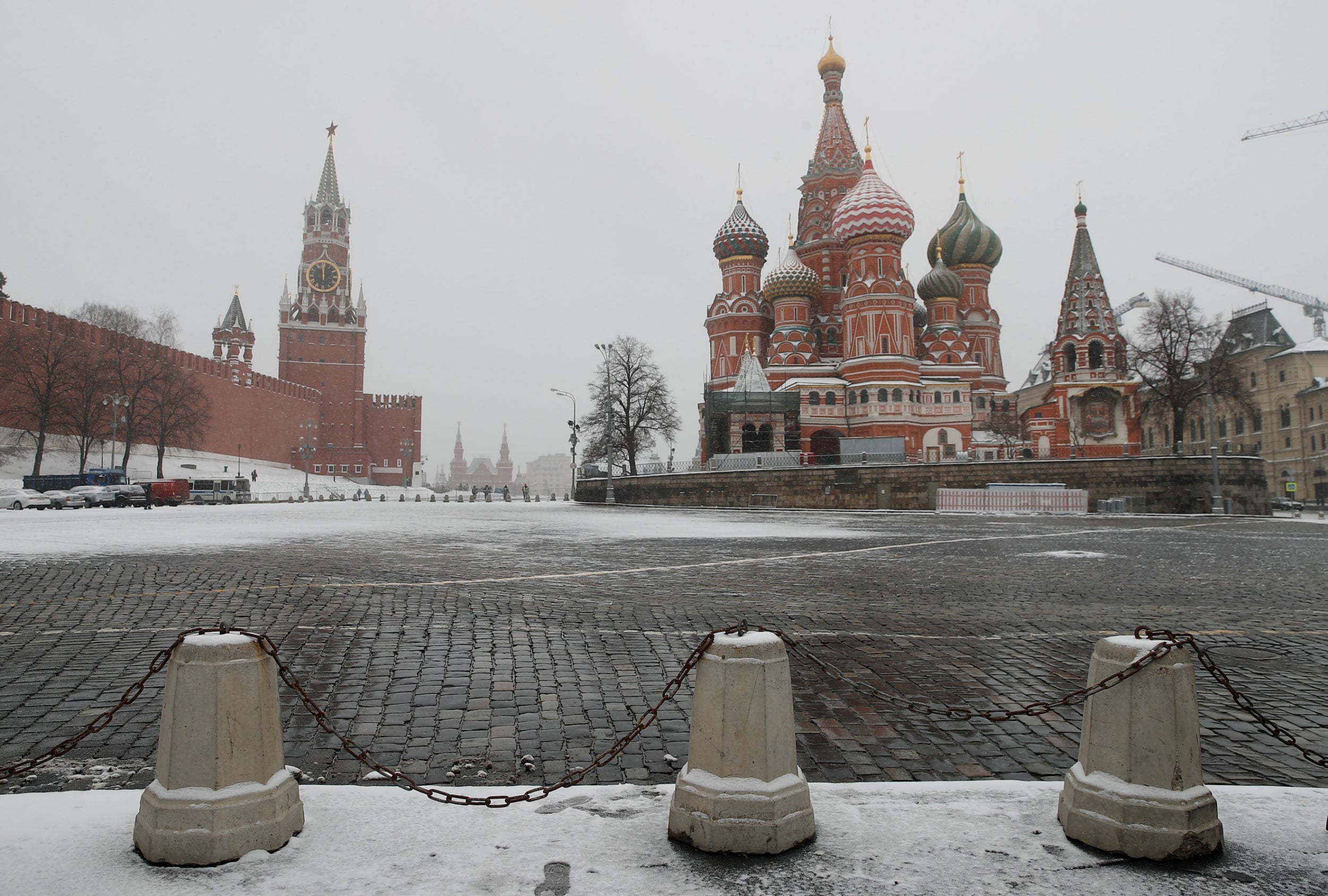
12/18 Moscow, Russia
Spasskaya Tower (left) on the eastern wall of the Kremlin, and St Basil’s Cathedral
Reuters
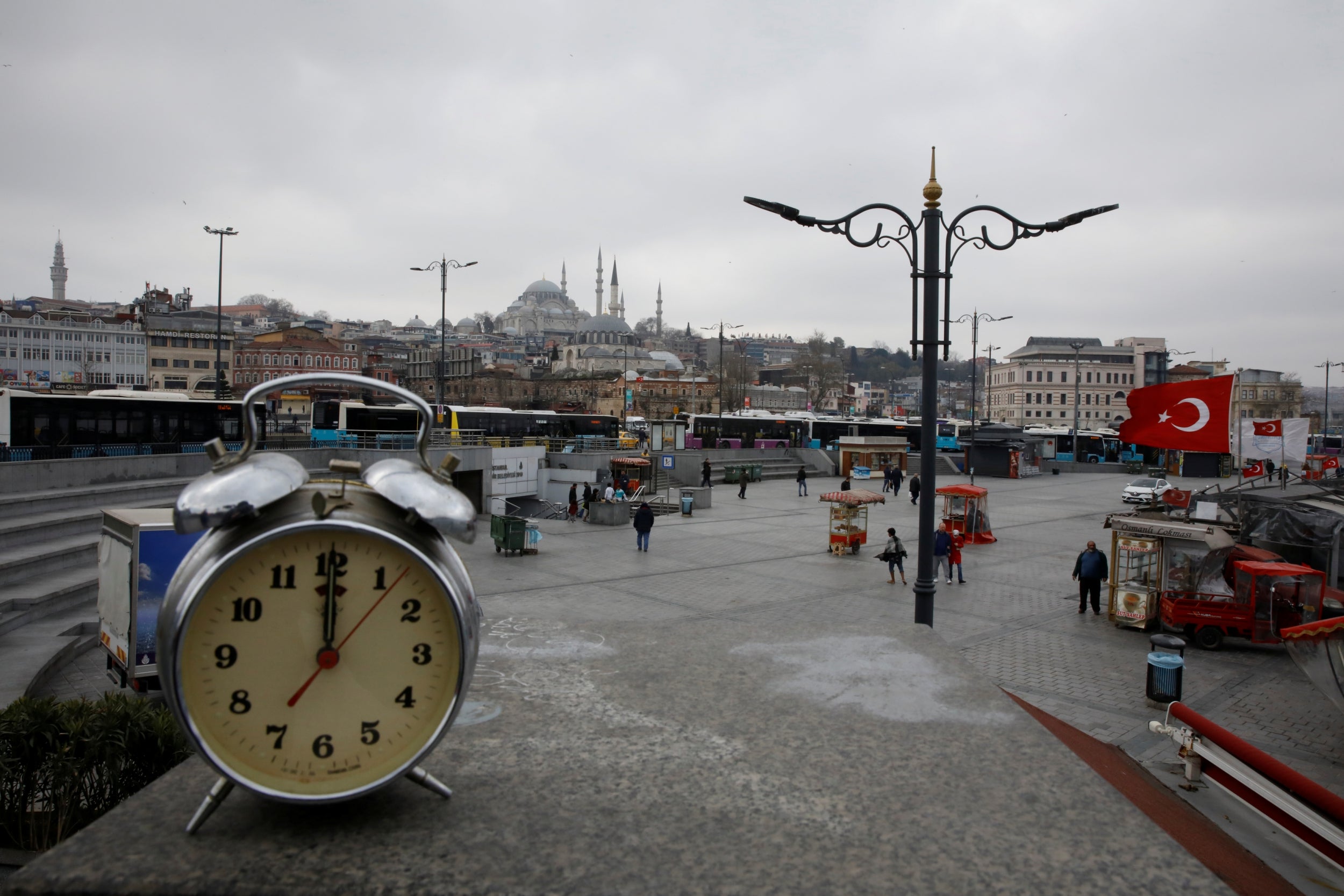
13/18 Istanbul,Turkey
The harbourside Eminonu district is usually buzzing with activity
Reuters

14/18 New Delhi, India
Rajpath, a ceremonial boulevard that runs through the capital
Reuters

15/18 Amman, Jordan
The Roman amphitheatre that dates back to the 2nd century AD
Reuters

16/18 New York City, US
The main concourse of Grand Central station in Manhattan
Reuters

17/18 Kiev, Ukraine
Maidan Nezalezhnosti, the site of many political protests since the end of the Soviet era
Reuters
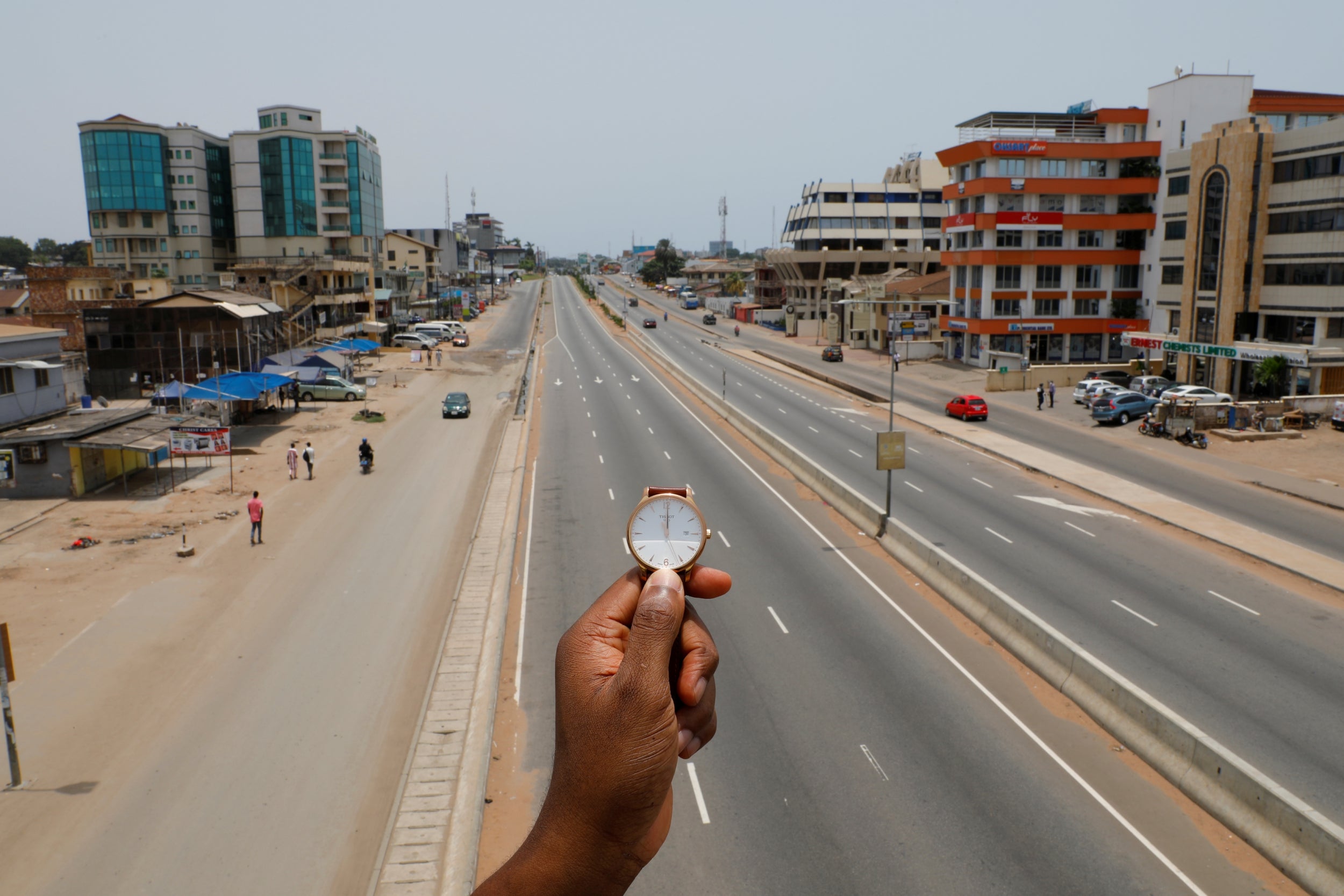
18/18 Accra, Ghana
The odd walker out in the midday sun on Ring Road Central
Reuters

1/18 Najaf, Iraq
A man holds a pocket watch at noon, at an almost empty market near the Imam Ali shrine
Reuters

2/18 Bangkok, Thailand
Wat Phra Si Rattana Satsadaram (The Temple of the Emerald Buddha, part of The Grand Palace)
Reuters

3/18 Prague, Czech Republic
An empty street leading to the historic Old Town Square
Reuters

4/18 Washington DC, US
Lawn stretching towards the Capitol, home of Congress
Reuters

5/18 Jerusalem’s Old City
A watch showing the time in front of Damascus Gate
Reuters

6/18 London, UK
The Houses of Parliament seen from Westminster Bridge
Reuters

7/18 Wuhan, China
Empty lanes in the city that saw the first outbreak of disease
Reuters

8/18 Havana, Cuba
The Malecon road and esplanade winds along the city’s seafront
Reuters

9/18 Cairo, Egypt
A little busier than elsewhere: midday traffic in Tahrir Square
Reuters

10/18 Berlin, Germany
The Brandenburg Gate, the only surviving city gate in the capital
Reuters

11/18 Caracas, Venezuela
Bolivar Avenue, opened in 1949 and the site of many demonstrations and rallies
Reuters

12/18 Moscow, Russia
Spasskaya Tower (left) on the eastern wall of the Kremlin, and St Basil’s Cathedral
Reuters

13/18 Istanbul,Turkey
The harbourside Eminonu district is usually buzzing with activity
Reuters

14/18 New Delhi, India
Rajpath, a ceremonial boulevard that runs through the capital
Reuters

15/18 Amman, Jordan
The Roman amphitheatre that dates back to the 2nd century AD
Reuters

16/18 New York City, US
The main concourse of Grand Central station in Manhattan
Reuters

17/18 Kiev, Ukraine
Maidan Nezalezhnosti, the site of many political protests since the end of the Soviet era
Reuters

18/18 Accra, Ghana
The odd walker out in the midday sun on Ring Road Central
Reuters
Half of the population would be infected and experience symptoms of the disease during one or more of these waves. But actual numbers infected would be higher due to the number of asymptomatic cases.
A pandemic of “moderate virulence” could lead to 65,600 deaths, while the cost to the UK could run to £2.35 trillion, the NRSA report said.
Even after the pandemic was over, it said that it could take months or even years for health and social care services to recover.
Tellingly, the report also warned of significant public outrage over any perceived poor handling of the government’s preparations and response to the emergency.
A government spokesperson refused to comment on a leak, but insisted that ministers had “taken the right steps at the right time” to combat the pandemic and were “guided at all times by the best scientific advice.
“The government has been proactive in implementing lessons learned around pandemic preparedness,” the spokesperson said.
“This includes being ready with legislative proposals that could rapidly be tailored to what became the Coronavirus Act, plans to strengthen excess death planning, planning for recruitment and deployment of retired staff and volunteers, and guidance for stakeholders and sectors across government.
“Our response has ensured that the NHS has been given all the support it needs to ensure everyone requiring treatment has received it, as well as providing protection to businesses and reassurance to workers.”


